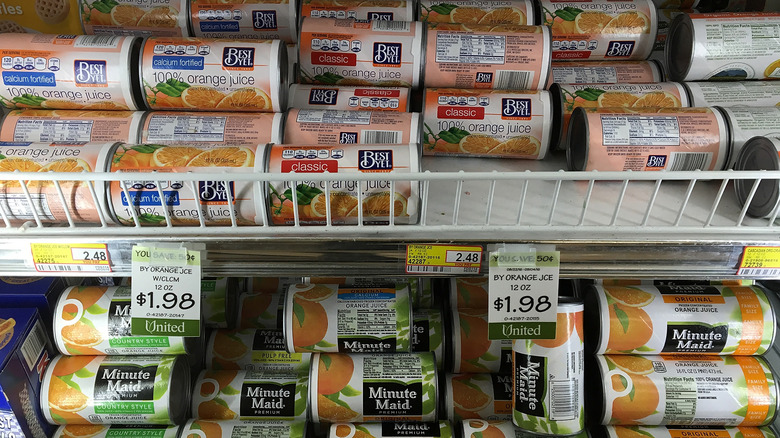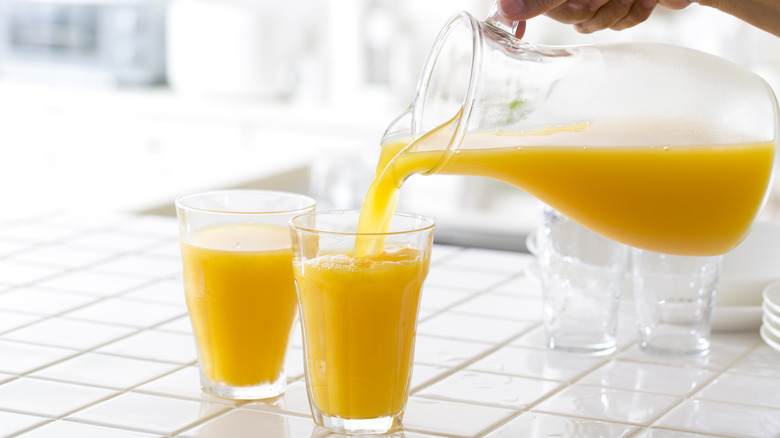What Happened To Those Little Cans Of Frozen Orange Juice?
Those of a certain age no doubt remember cans of frozen orange juice concentrate, once an everyday staple on countless breakfast tables around the U.S. However, in recent decades, it's clear they've become less common, no longer occupying the same space in American food culture or the freezer at your local supermarket. So, what happened to bring about the change in fortunes for this iconic drink? It turns out that a complex mix of evolving tastes and a changing marketplace is to blame.
To understand what happened to those little frozen cans, it's vital to understand what exactly is inside them. They contain frozen orange juice concentrate, a processed version of fresh orange juice developed in the 1940s (when it played a critical role in World War II) to allow the easy transportation of orange juice without spoilage. At the time, it was far cheaper than fresh juice and offered the benefit of being able to be quickly prepared by stirring into a pitcher of water.
However, as of 2016, U.S. consumption of frozen orange juice concentrate had fallen to a paltry 1.4 million gallons per month compared to 19 million gallons of fresh juice. Overall consumption has fallen since the turn of the century, too. From a simple practical perspective, it's easy to see why supermarkets and other food sellers would dedicate less space to what's increasingly become a niche product.
Cost concerns, but quality improvements
Like most changes in food habits, there's no way of knowing the precise reasons behind it. However, it follows general 21st-century trends that prize freshness and whole foods while seeking to minimize heavily processed items. To be sure, there are real reasons why you should think twice about drinking juice from concentrate. For example, many concentrates add sugar or preservatives to improve flavor and longevity, and they lack some nutritional benefits, such as fiber, that whole fruit provides. However, recent improvements to the concentrate production process mean a higher-quality end result with better flavor and more natural texture.
Meanwhile, as food budgets have been squeezed by inflation in recent years, frozen orange juice concentrate has followed suit with dramatic increases. Per the Federal Reserve Bank of St. Louis, the cost for a 16-ounce can soared into the mid-$4 range as of mid-2025, nearly twice the price shoppers paid as recently as late 2019. This significant increase could further accelerate movement away from frozen juice concentrate.
Though it might not be as popular as it once was, orange juice can still contribute to your cooking in unexpected ways. But if you're spending more time searching for that once-ubiquitous can of concentrate, remember why that is.

